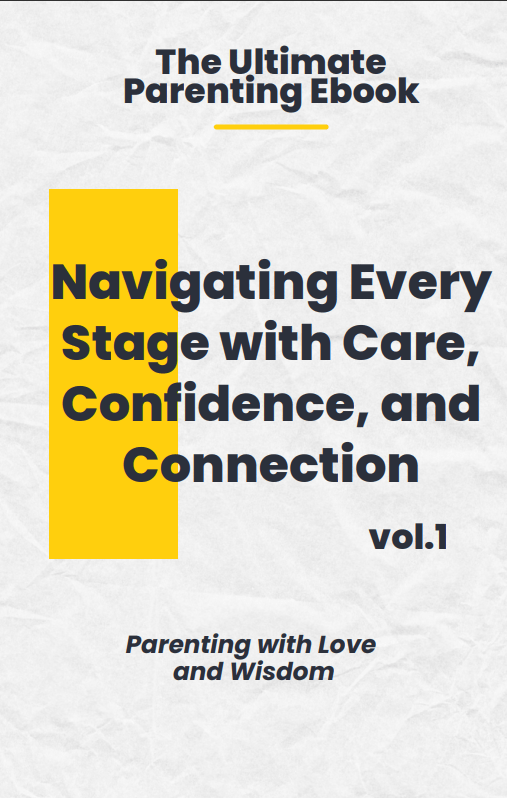Parenting today’s teens in a culture of perfectionism? Know the effective strategies to support your teen’s mental health and promote realistic expectations.

Parenting today’s teens presents unique challenges, particularly in a society increasingly driven by unrealistic standards of perfection. According to a study rates of perfectionism have increased significantly among young people over the past three decades, largely due to social media and cultural pressures.
As parents, understanding how to navigate this toxic culture of perfection is crucial for fostering a supportive and healthy environment for your teen. This comprehensive guide aims to equip you with the knowledge and tools needed to manage the complexities of parenting today’s teens effectively.
In This Blog
ToggleUnderstanding the Culture of Perfection
Perfectionism is characterized by an individual’s relentless pursuit of flawlessness and setting excessively high performance standards. This can manifest in various aspects of a teenager’s life, including academics, appearance, and social status. For instance, social media platforms like Instagram and TikTok often promote idealized images and lifestyles, creating unrealistic standards that teenagers feel pressured to meet.
How This Culture Affects the Mental and Emotional Well-Being of Teens
The impact of this perfectionist culture on teenagers is profound. Research indicates that perfectionism is linked to increased levels of anxiety, depression, and burnout. Teens striving for unattainable standards often experience chronic stress and a diminished sense of self-worth. The constant comparison to peers and the fear of failure can lead to significant emotional distress.
The Role of Social Media and Peer Pressure in Promoting Perfectionism
Social media exacerbates the culture of perfection by presenting curated versions of reality. Teens are bombarded with images of seemingly perfect lives, leading to harmful comparisons. Additionally, peer pressure to conform to these ideals further fuels the cycle of perfectionism, making it a pervasive issue in parenting today’s teens.
Recognizing the Signs and Impact on Teens
As a parent, it’s essential to recognize the signs that perfectionism is impacting your teen adversely. These can include an obsessive focus on grades, appearance, and social status. Teens may also exhibit signs of irritability, fear of failure, and a reluctance to try new things due to the fear of not meeting their high standards.
Watch for emotional and behavioral indicators such as increased irritability, anxiety, and a decline in academic performance. Teens struggling with perfectionism may also become socially withdrawn, avoiding activities they once enjoyed for fear of not excelling.
Early detection and intervention are crucial. Addressing these issues promptly can prevent the development of more severe mental health problems.

Strategy 1: Promoting Realistic Expectations
Setting Achievable Goals and Celebrating Progress
One effective strategy in parenting today’s teens is to promote realistic expectations. Encourage your teen to set achievable goals and celebrate their progress. For example, rather than focusing solely on perfect grades, emphasize the importance of effort and improvement.
Encouraging a Growth Mindset
Fostering a growth mindset can help teens view challenges as opportunities for learning rather than threats to their self-worth. Praise their resilience and persistence, and remind them that mistakes are a natural part of the learning process.
Teaching That Failure Is a Part of Learning
Teaching your teen that failure is an integral part of learning can alleviate the pressure to be perfect. Share personal stories of overcoming setbacks to illustrate that everyone experiences failures and that these moments can lead to growth and development.
Strategy 2: Open Communication in Parenting Today’s Teens
Creating a Safe Space for Dialogue
Creating a safe space for dialogue is essential in parenting today’s teens. Regular family meetings can provide an opportunity to discuss pressures and stressors openly. Encourage your teen to express their fears and anxieties without fear of judgment.
Encouraging Teens to Express Their Fears and Anxieties
Use open-ended questions to facilitate conversations about their experiences and concerns. For instance, ask them how they feel about their social media presence or academic pressures. Listening actively and empathetically can help them feel supported.
Discussing the Unrealistic Nature of Perfectionism
Discuss the unrealistic nature of perfectionism with your teen. Analyze social media posts together to identify unrealistic portrayals and explain how these images are often edited and curated to look perfect.
Strategy 3: Redefining Success and Self-Worth
Emphasizing Intrinsic Values Over External Achievements
Emphasize the importance of intrinsic values such as kindness, creativity, and integrity over external achievements. Help your teen understand that their worth is not solely determined by their accomplishments.
Helping Teens Find and Pursue Their Passions
Support your teen in finding and pursuing their passions. Encourage participation in extracurricular activities that align with their interests and provide a sense of fulfillment beyond academic success.
Reinforcing Self-Worth Independent of Achievements
Regularly compliment your teen on their character and effort, not just their achievements. Reinforce that their self-worth is independent of their performance in school or other areas.
Strategy 4: Encouraging Balance and Self-Care
Importance of Downtime and Relaxation
Encouraging balance and self-care is crucial in parenting today’s teens. Ensure they have ample downtime and relaxation to recharge. Schedule regular family activities that promote relaxation and bonding.
Teaching Stress Management Techniques
Introduce stress management techniques such as mindfulness and meditation. These practices can help your teen manage anxiety and maintain emotional balance.
Encouraging Hobbies and Interests Outside of Academic Pursuits
Encourage your teen to engage in hobbies and interests outside of their academic pursuits. Activities like sports, arts, and socializing can provide a healthy outlet for stress and promote overall well-being.
Strategy 5: Leading by Example in Parenting Today’s Teens
Modeling Healthy Behaviors and Attitudes
As a parent, leading by example is vital. Model healthy behaviors and attitudes by demonstrating balance in your own life. Show your teen that it’s possible to strive for excellence without succumbing to the pressures of perfectionism.
Sharing Your Own Experiences With Imperfection
Share your own experiences with imperfection to normalize mistakes and setbacks. Discuss what you learned from these experiences and how they contributed to your growth.
Practicing Self-Compassion and Self-Care
Show your teen how to practice self-compassion and self-care. Demonstrate how you handle stress and setbacks with grace and resilience.
Strategy 6: Promoting Positive Online Behavior
Educating Teens About the Realities of Social Media
Promoting positive online behavior is crucial in parenting today’s teens. Educate your teen about the realities of social media, including how photos and posts are often curated and edited.
Encouraging Digital Detoxes and Breaks from Social Media
Encourage digital detoxes and breaks from social media to reduce pressure. Implement tech-free times or days to help your teen disconnect and recharge.
Help your teen find and follow positive influencers and role models who promote healthy and realistic lifestyles.
Strategy 7: Practicing Gratitude and Positive Thinking
Encouraging Daily Gratitude Practices to Shift Focus from Perfection to Positivity
Practicing gratitude and positive thinking can shift the focus from perfection to positivity. Start a family gratitude journal where everyone writes daily entries.
Teaching the Power of Positive Affirmations
Teach your teen the power of positive affirmations. Create affirmation cards with encouraging statements for daily use.
Promoting a Positive Outlook on Life and Embracing Imperfections
Promote a positive outlook on life and encourage your teen to embrace imperfections. Discuss the benefits of seeing challenges as opportunities for growth.
Conclusion
Navigating the challenges of parenting today’s teens in a toxic culture of perfection requires a multifaceted approach. By understanding the impact of perfectionism, recognizing signs of distress, promoting realistic expectations, fostering open communication, redefining success, encouraging balance and self-care, leading by example, building a support network, promoting positive online behavior, encouraging teamwork, developing problem-solving skills, and practicing gratitude and positive thinking, you can help your teen thrive.
Remember, you are not alone in this journey. If you have any questions or want to share your experiences, feel free to leave a comment below. Your insights can provide valuable support and encouragement to other parents facing similar challenges.
You may also be interested in : 20+ Tips To Dealing With Teenagers Who Talk Back
FAQs
1. What are the signs of perfectionism in teens?
Signs include an obsessive focus on grades, fear of failure, reluctance to try new things, and excessive worry about meeting high standards.
2. How can I help my teen deal with perfectionism?
Encourage realistic expectations, promote a growth mindset, and teach them that failure is part of learning. Foster open communication and provide support.
3. Why is social media a factor in teen perfectionism?
Social media often showcases idealized, edited images and lifestyles, leading teens to compare themselves unfavorably and strive for unrealistic standards.
4. How can I teach my teen to have a healthier relationship with social media?
Educate them about the curated nature of online content, encourage breaks from social media, and guide them to follow positive role models.
5. What role does open communication play in managing perfectionism?
Open communication allows teens to express their fears and anxieties, helping parents provide support and guidance while debunking unrealistic expectations.
6. How can I encourage my teen to value intrinsic qualities over external achievements?
Highlight the importance of kindness, creativity, and integrity. Compliment their character and efforts, not just their accomplishments.
7. What are effective stress management techniques for teens?
Introduce mindfulness, meditation, and physical activities. Encourage hobbies and ensure they have downtime to relax and recharge.
8. How can I model healthy behaviors for my teen?
Demonstrate balance in your own life, share your experiences with imperfection, and practice self-compassion and self-care.
9. When should I seek professional help for my teen?
If your teen shows signs of severe anxiety, depression, or perfectionism that significantly affects their daily life, consult a therapist or counselor.
10. How can I build a support network for my teen?
Connect with other parents, join local or online parenting groups, and encourage your teen to develop friendships and mentor relationships.




